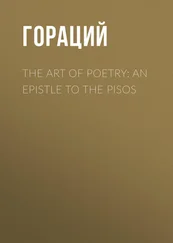Charles Gore - St. Paul's Epistle to the Ephesians - A Practical Exposition
Здесь есть возможность читать онлайн «Charles Gore - St. Paul's Epistle to the Ephesians - A Practical Exposition» — ознакомительный отрывок электронной книги совершенно бесплатно, а после прочтения отрывка купить полную версию. В некоторых случаях можно слушать аудио, скачать через торрент в формате fb2 и присутствует краткое содержание. Издательство: Иностранный паблик, Жанр: foreign_religion, foreign_antique, foreign_prose, на английском языке. Описание произведения, (предисловие) а так же отзывы посетителей доступны на портале библиотеки ЛибКат.
- Название:St. Paul's Epistle to the Ephesians: A Practical Exposition
- Автор:
- Издательство:Иностранный паблик
- Жанр:
- Год:неизвестен
- ISBN:нет данных
- Рейтинг книги:4 / 5. Голосов: 1
-
Избранное:Добавить в избранное
- Отзывы:
-
Ваша оценка:
- 80
- 1
- 2
- 3
- 4
- 5
St. Paul's Epistle to the Ephesians: A Practical Exposition: краткое содержание, описание и аннотация
Предлагаем к чтению аннотацию, описание, краткое содержание или предисловие (зависит от того, что написал сам автор книги «St. Paul's Epistle to the Ephesians: A Practical Exposition»). Если вы не нашли необходимую информацию о книге — напишите в комментариях, мы постараемся отыскать её.
St. Paul's Epistle to the Ephesians: A Practical Exposition — читать онлайн ознакомительный отрывок
Ниже представлен текст книги, разбитый по страницам. Система сохранения места последней прочитанной страницы, позволяет с удобством читать онлайн бесплатно книгу «St. Paul's Epistle to the Ephesians: A Practical Exposition», без необходимости каждый раз заново искать на чём Вы остановились. Поставьте закладку, и сможете в любой момент перейти на страницу, на которой закончили чтение.
Интервал:
Закладка:
If we are to understand at all adequately the world in which St. Paul wrote, the thought of the Roman Empire and of the unity which it was giving the world must be clearly before our minds: and it will not be a digression if we pause to dwell upon it at this point when we are considering the significance of St. Paul's situation as at once a prisoner and an evangelist in the great capital.
The Roman Empire brought the world, that is the whole of the known world which was thought worth considering, into a great unity of government. What had once been independent kingdoms had now become provinces of the empire, and the whole of the Roman policy was directed towards drawing closer the unity, and educating the provinces in Roman ideas[ 15 15 Ramsay, Paul the Traveller (Hodder and Stoughton, 1895), pp. 130 ff.
].
If we seek to define Roman unity a little more closely the following elements will be found perhaps the most important for our purpose. (1) It was a unity of government strongly centralized at Rome in the person of the emperor. The letters of a provincial governor like Pliny to his master Trajan at Rome reveal to us how even trivial matters, such as the formation of a guild of firemen in Pliny's province of Bithynia, were referred up to the emperor. Roman government was in fact personal and centralized in a very complete sense, and had the uniformity which accompanies such a condition. (2) This centralized personal government is, of course, only possible where there is a well-organized system of inter-communication between the widely-separated parts of a great empire. And there was this to an amazing extent in the Roman empire. We find evidence of it in the great roads representing a highly developed system of travelling. 'It is not too much to say that travelling was more highly developed and the dividing power of distance was weaker under the Empire than at any time before or since until we come down to the present century.' This is what gives such a modern and cosmopolitan flavour to the lives of men of the Empire as unlike one another in other respects as Strabo and Jerome. We find the evidence of such a system of inter-communication also, and not less impressively, in the multiplied proofs afforded to us that every movement of thought in the Empire must needs pass to Rome and establish itself there. The rapid arrival of all oriental tendencies or beliefs at Rome was, of course, what from the point of view of conservative Romans meant the destruction of all that they valued in character and ideals. 'The Orontes had poured itself into the Tiber.' But it was none the less a fact of the utmost significance for the world's progress. (3) The unity of the Empire depended largely on the use which was made of Greek civilization and Greek language. The Empire may be rightly described, if we are considering its eastern half, as Greek no less than Roman from the first. Everywhere it was the Greek language which was the instrument of Roman government, and Greek civilization, tempered by somewhat barbarous Roman 'games,' which was put into competition with local customs whether social or religious[ 16 16 Ramsay, l. c. p. 132.
]. (4) Lastly, to a very real extent the Empire was aiming at the establishment of a universal religion. Independent local gods and local cults suited well enough a number of independent little tribes and kingdoms, but it was felt instinctively that the one empire involved also one religion, and with more or less of deliberate intention the one religion was provided in the worship of the emperor, or, perhaps we should say, of the Empire.
This worship of the emperor has been among us a very byword for what is monstrous and unintelligible. It bewilders us when we hear of something like it in our own Indian empire. And yet a little imagination ought to show us that where a pure monotheism has not taught men the moral purity and personal character of God – where religion is either pantheism, the deification of the one life, or idolatry, the deification of separate forms of life – the worship of the imperial authority is intelligible enough. Here was a vast power, universal in its range, mostly beneficent, and yet awful in its limitless and arbitrary power of chastisement; what should it be but divine, like nature, and an object to be appealed to, propitiated, worshipped? At any rate the cultus of the emperor spread in the Roman world, and particularly in the Asiatic provinces. It could ally itself with the current pantheistic philosophy and also with popular local cults: for it was tolerant of all and could embrace them all, or in some cases it could identify itself with them – the emperor being regarded as a special manifestation of the local god. And it made itself popular through games – wild beast shows and gladiatorial contests – which it was the business of its high priests or presidents to provide or to organize. Thus it was that the Roman world came to be organized by provinces for the purposes of the imperial religion, and the provincial presidents, whom we hear of in the Acts as 'Asiarchs' or 'chiefs of Asia,' and from other sources as existing in the other provinces – Galatarchs, Bithyniarchs, Syriarchs, and so on – were also the high priests of the worship of the Caesars, by which it was sought to make religion, like everything else, contribute to cement imperial unity[ 17 17 See Mommsen, Provinces of Roman Empire (Eng. trans.), i. 344 ff.; Lightfoot, Ign. and Polyc. iii. pp. 404 ff.
].
Now there can be no doubt at all, if we look back from the fourth or fifth centuries of our era, to how vast an extent this Roman unity had been made an engine for the propagation of the Church. And the Christians – the Spanish poet Prudentius, for instance, or Pope Leo the Great[ 18 18 App. note A, p. 251.
] – betray a strong consciousness of the place held by the empire in the divine preparation for Christ. For long periods the Roman authority was tolerant of Christianity and suffered its propagation to go on in peace; and at the times when it became alarmed at its subversive tendencies, and turned to become its persecutor, still the Church could not be prevented from using the imperial organization, its roads and its means of communication. Again, every step in the progress of the Greek language facilitated the spread of the new religion, the propagation of which was through Greek; and conversely Christianity became an instrument for spreading the use of this language which previously was making but a poor struggle against the languages of Asia Minor; for it is apparently a simple mistake to suppose that even the apostles were miraculously dispensed from the difficulties of acquiring new languages, and were enabled to speak all languages as it were by instinct. Even the imperial religion provided a framework to facilitate the organization of that still more imperial religion which it found indeed absolutely incompatible with its prerogatives, but in which it might have found an efficient substitute to accomplish its own best ends. Thus the early Christian apologist Tatian pleads that Christianity alone could supply what was manifestly needed for a united world, a universal moral law and a universal gratuitous education or philosophy, open to rich and poor, men and women, alike[ 19 19 Tatian, Ad Graecos , 28, 32.
]. So strong in fact was in many respects the affinity of the Empire and the Church that the apologists are not infrequently able to claim, and that plausibly, that if the Roman authorities were ready to recognize it, they would find in the Church their most efficient ally.
And there is no doubt that all this tendency to use the empire as the ally and instrument of the Church began with St. Paul. The closer St. Paul's evangelistic travels are examined the more apparent does it become that he, the apostle who was also the Roman citizen, was by the very force of circumstances, but also probably deliberately, working the Church on the lines of the empire. 'The classification adopted in Paul's own letters of the churches which he founded, is according to provinces – Achaia, Macedonia, Asia, and Galatia; the same fact is clearly visible in the narrative of Acts. It guides and inspires the expressions from the time when the apostle landed at Perga. At every step any one who knows the country recognizes that the Roman division is implied[ 20 20 Ramsay, l. c. p. 135.
].' Nor can we fail to be struck with the regularity with which St. Paul, wherever he mentions the Empire, takes it on its best side and represents it as a divine institution whose officers are God's ministers for justice and order and peace[ 21 21 Rom. xiii. 1-7; cf. ii. Thess. ii. 6.
]. It is from this point of view alone that he will have Christians think of it and pray for it[ 22 22 1 Tim. ii. 1, 2.
]. There is the confidence of the true son of the empire in his 'I appeal unto Caesar[ 23 23 Acts xxv. 12.
].'
Интервал:
Закладка:
Похожие книги на «St. Paul's Epistle to the Ephesians: A Practical Exposition»
Представляем Вашему вниманию похожие книги на «St. Paul's Epistle to the Ephesians: A Practical Exposition» списком для выбора. Мы отобрали схожую по названию и смыслу литературу в надежде предоставить читателям больше вариантов отыскать новые, интересные, ещё непрочитанные произведения.
Обсуждение, отзывы о книге «St. Paul's Epistle to the Ephesians: A Practical Exposition» и просто собственные мнения читателей. Оставьте ваши комментарии, напишите, что Вы думаете о произведении, его смысле или главных героях. Укажите что конкретно понравилось, а что нет, и почему Вы так считаете.













детально рассмотрела важный вопрос и предоставила читателям полезные
знания. Очень захватывающая познавательная и увлекательная для меня,
как автора статей на тему онлайн-игр на данной платформе https://1win-russia.net/ , однако это далеко не единственное из моих интересов!
В частности меня заинтересовал
научный метод к рассмотрению
этой проблемы и ясное изложение главных моментов.
Статья очевидно осуществила значительную работу по сбору и анализе информации, что делает её ценным ресурсом знаний.
Отличное выполнение!